Localized Approaches to Measuring Localization
Technical Brief
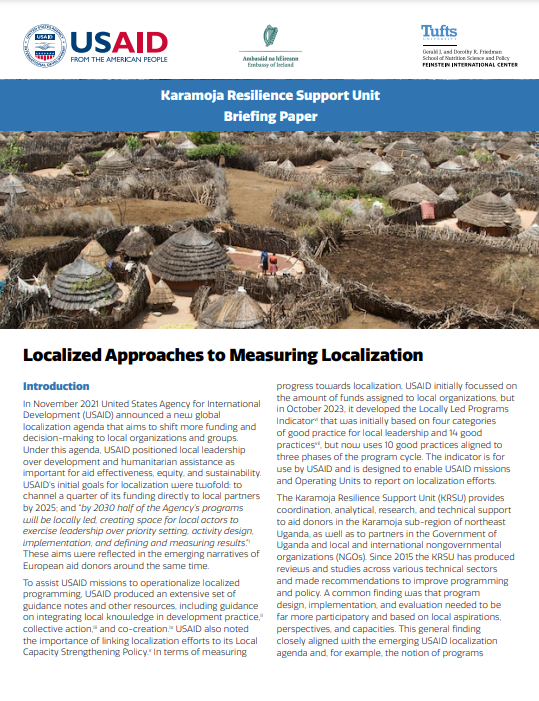
Localized Approaches to Measuring Localization
In November 2021 United States Agency for International Development (USAID) announced a new global localization agenda that aims to shift more funding and decision-making to local organizations and groups. Under this agenda, USAID positioned local leadership over development and humanitarian assistance as important for aid effectiveness, equity, and sustainability.
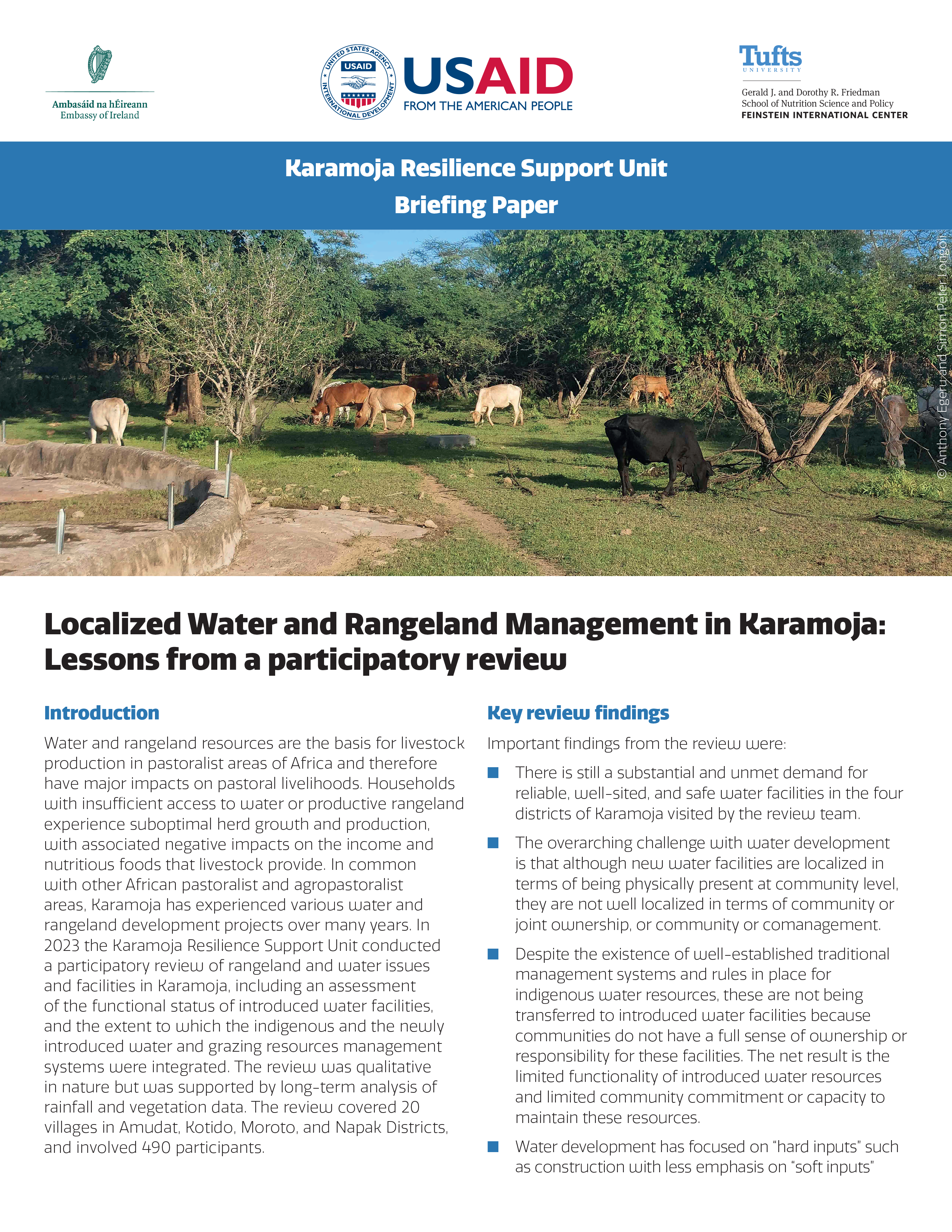
Localized Water and Rangeland Management in Karamoja: Lessons from a participatory review
Water and rangeland resources are the basis for livestock production in pastoralist areas of Africa and therefore have major impacts on pastoral livelihoods. Households with insufficient access to water or productive rangeland experience suboptimal herd growth and production, with associated negative impacts on the income and nutritious foods that livestock provide. In common with other African pastoralist and agropastoralist areas,
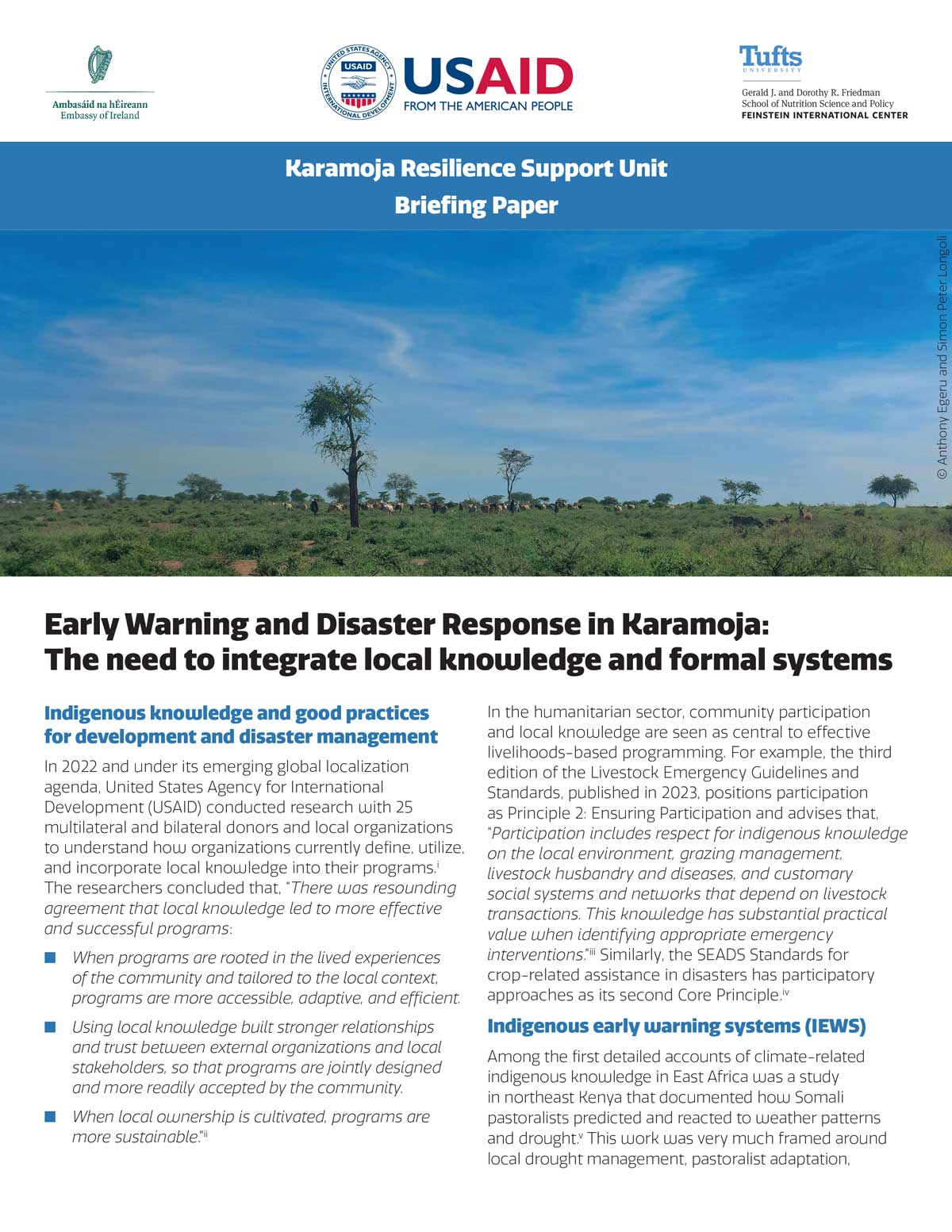
Early Warning and Disaster Response in Karamoja: The need to integrate local knowledge and formal systems
A genuine localized approach to early warning should shift the approach to more of a partnership and coacceptance of the strengths and weaknesses of indigenous and conventional systems.
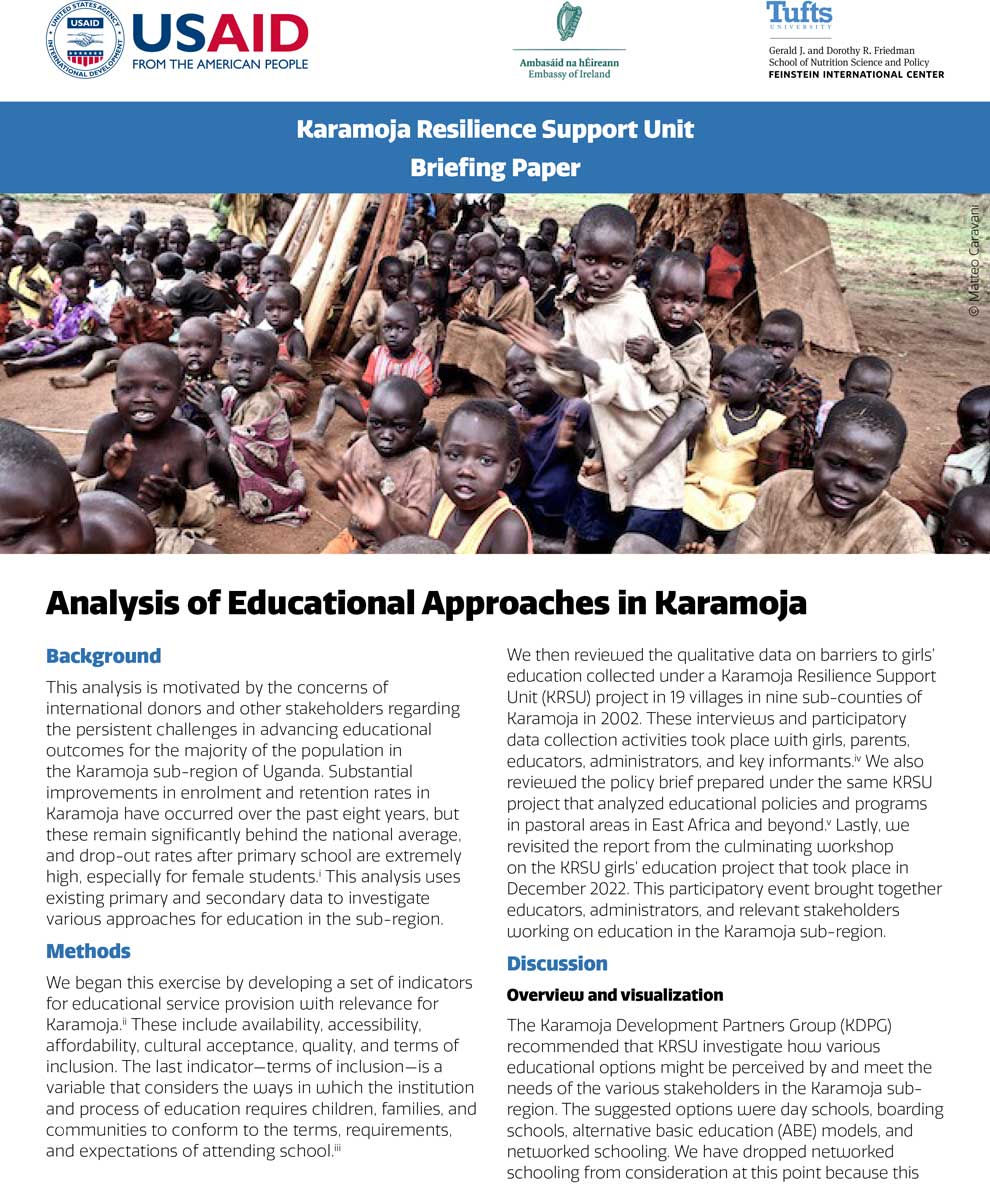
Analysis of Educational Approaches in Karamoja
This analysis is motivated by the concerns of international donors and other stakeholders regarding the persistent challenges in advancing educational outcomes for the majority of the population in the Karamoja sub-region of Uganda. Substantial improvements in enrolment and retention rates in Karamoja have occurred over the past eight years, but these remain significantly behind the national average, and drop-out rates after primary school are extremely high, especially for female students.i This analysis uses existing primary and secondary data to investigate various approaches for education in the sub-region.
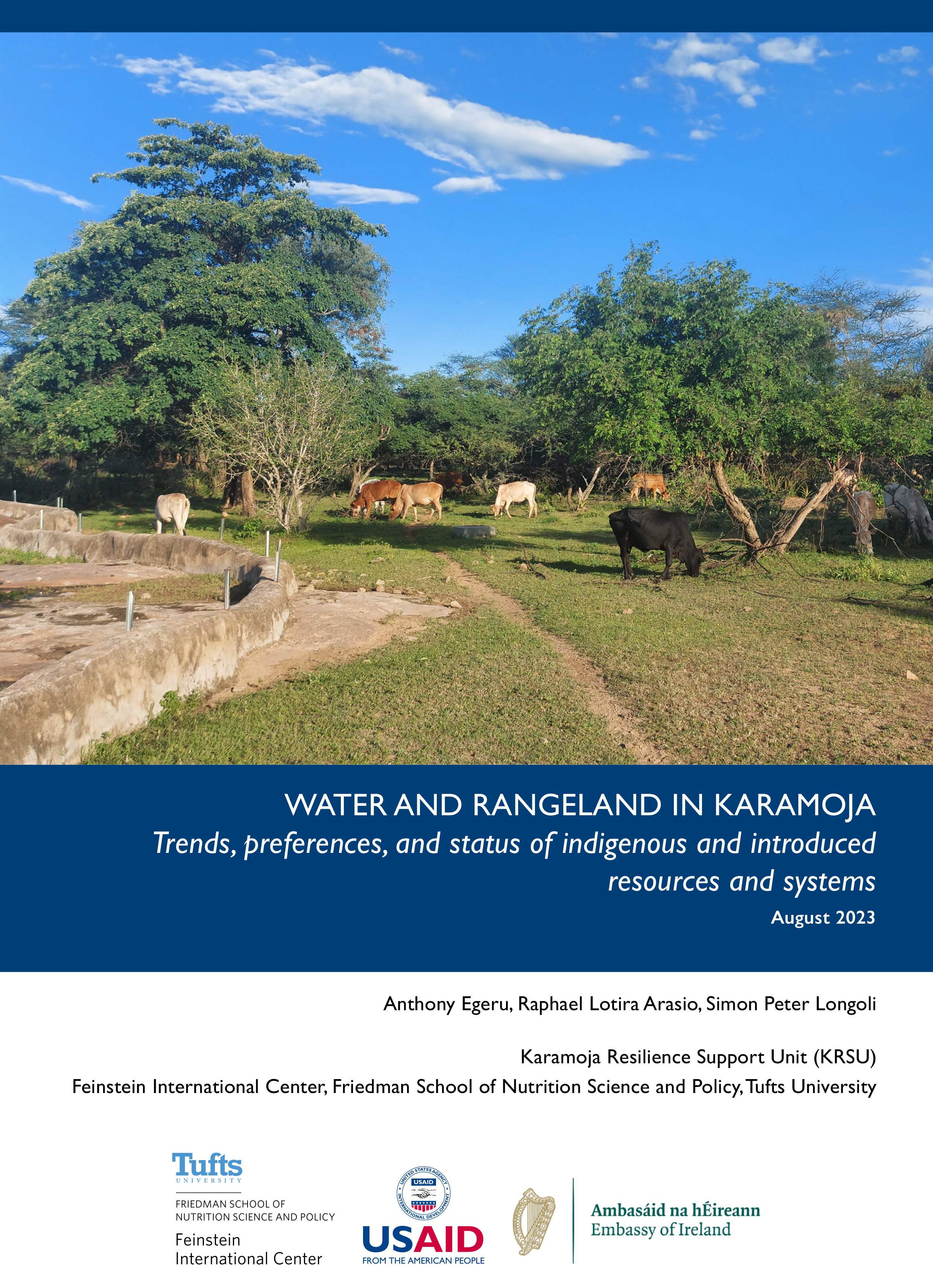
WATER AND RANGELAND IN KARAMOJA
Water and rangeland resources are the basis for livestock production in pastoralist areas of Africa and therefore have major impacts on pastoral livelihoods. Households with insufficient access to water or productive rangeland experience suboptimal herd growth and production, with associated negative impacts on the income and nutritious foods that livestock provide.
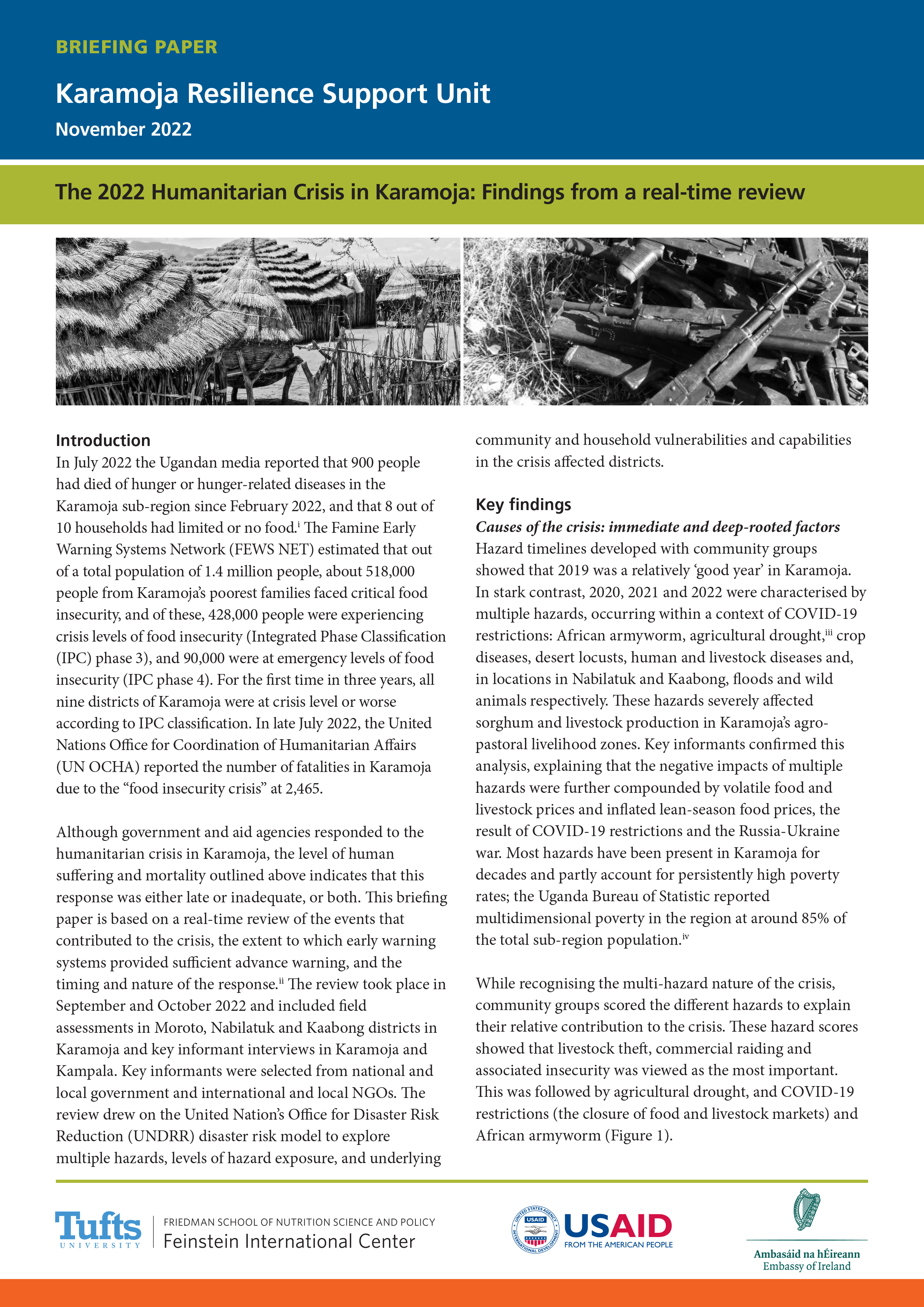
The 2022 Humanitarian Crisis in Karamoja: Findings from a real-time review
In July 2022 the Ugandan media reported that 900 people had died of hunger or hunger-related diseases in the Karamoja sub-region since February 2022, and that 8 out of 10 households had limited or no food.i
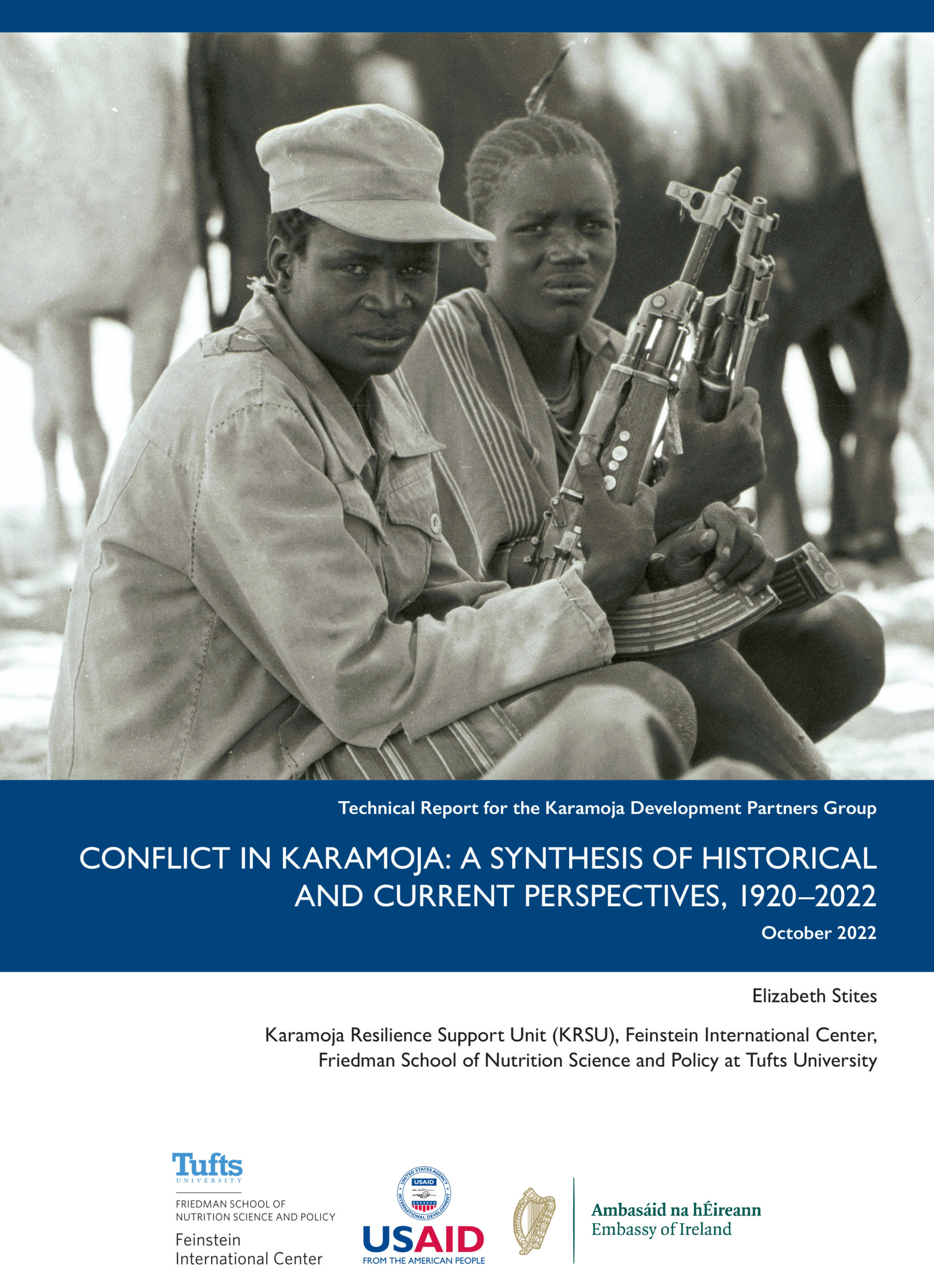
Conflict in Karamoja: A Synthesis of Historical and Current Perspectives, 1920-2022
This knowledge synthesis focuses on violent conflict in the Karamoja sub-region of northeastern Uganda. While violence and conflict both can and do take many forms, this synthesis takes as its focus the phenomenon of cattle raiding and associated violence. This knowledge synthesis briefly describes the concept and role of cattle raiding within pastoral societies in East Africa and the Karamoja Cluster and then examines different historical periods and experiences of violent conflict associated with cattle raiding within the Karamoja sub-region.
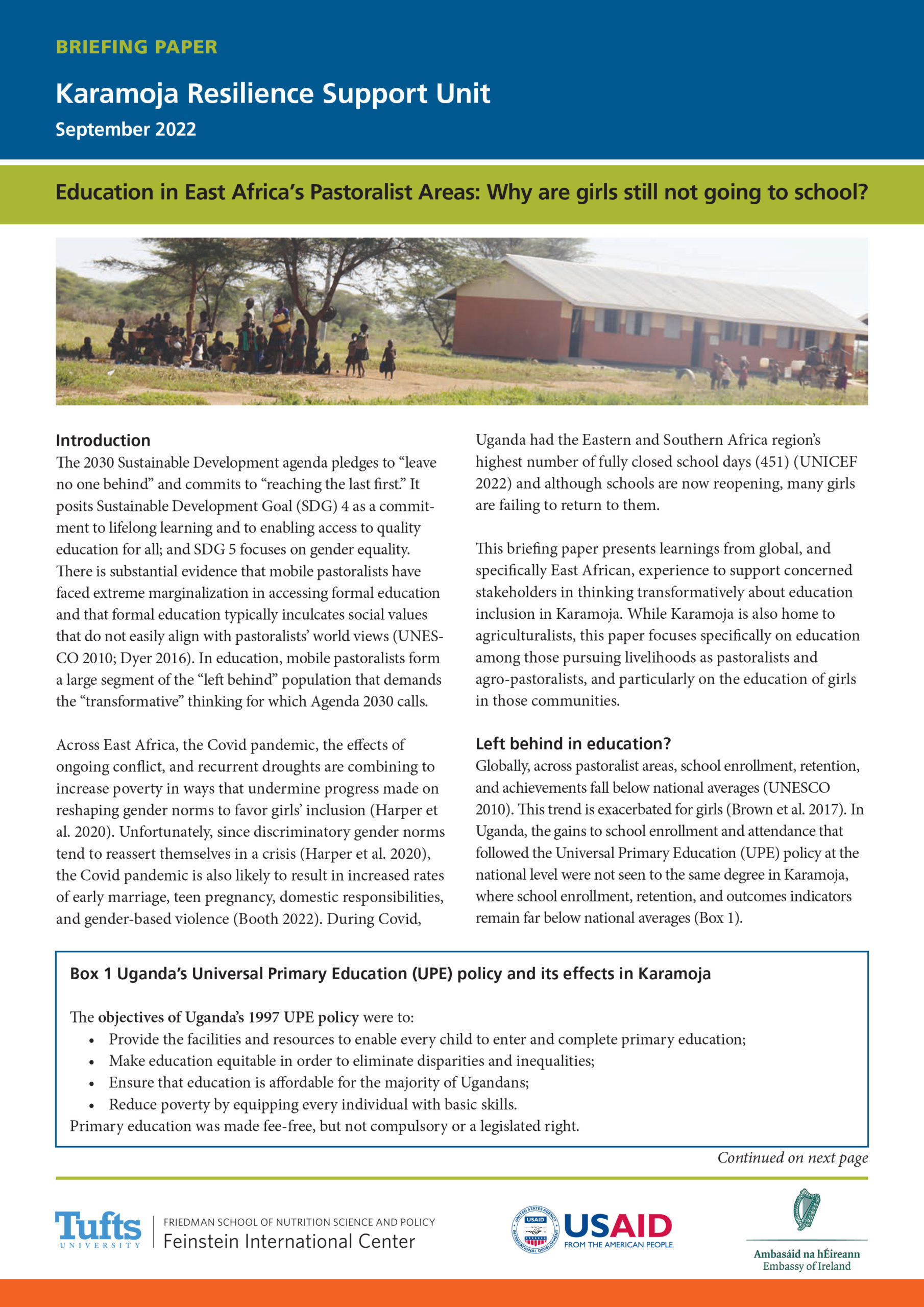
Education in East Africa’s Pastoralist Areas: Why are girls still not going to school?
This briefing paper presents learnings from global, and specifically East African, experience to support concerned stakeholders in thinking transformatively about education inclusion in Karamoja. While Karamoja is also home to agriculturalists, this paper focuses specifically on education among those pursuing livelihoods as pastoralists and agro-pastoralists, and particularly on the education of girls in those communities.
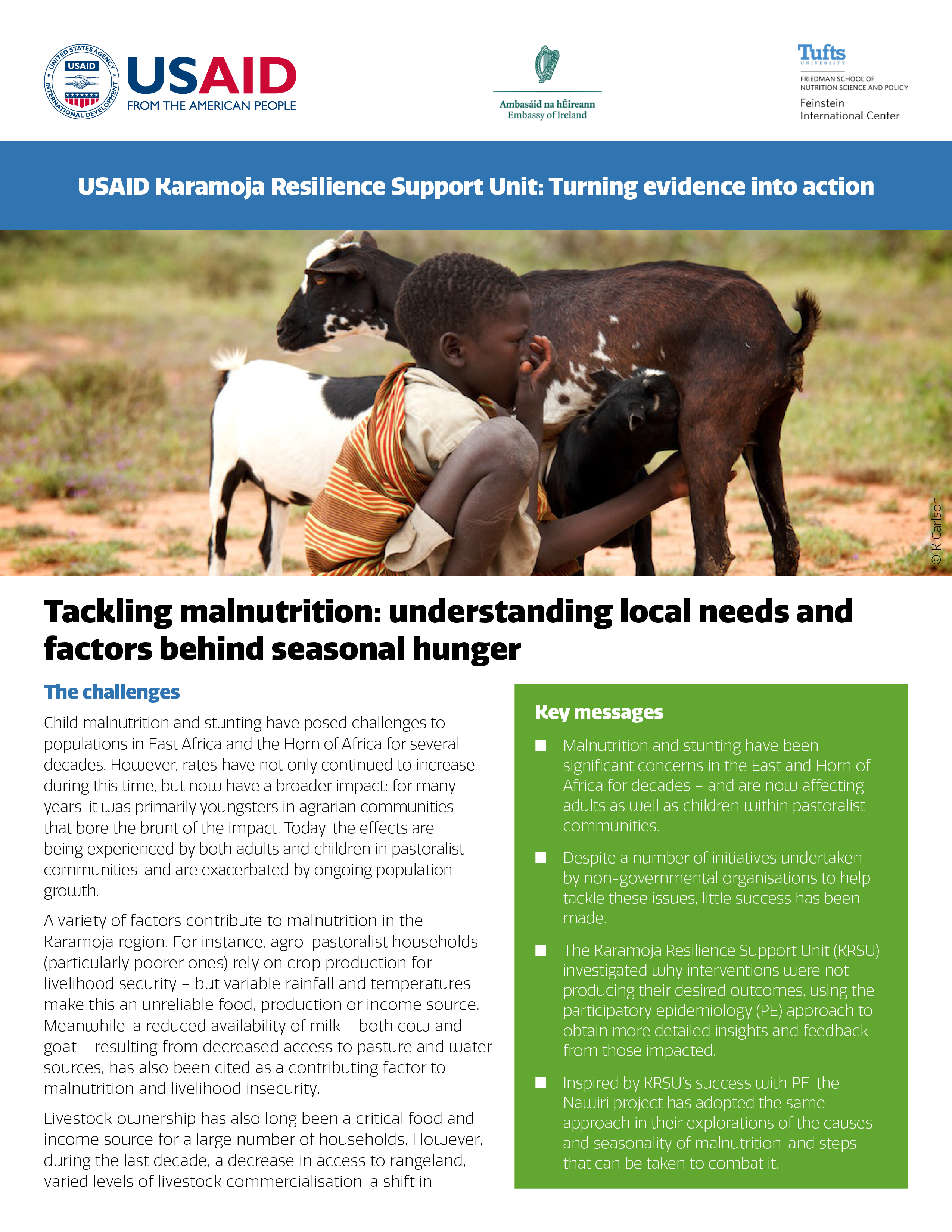
Tackling malnutrition: understanding local needs and factors behind seasonal hunger
Child malnutrition and stunting have posed challenges to populations in East Africa and the Horn of Africa for several decades. However, rates have not only continued to increase during this time, but now have a broader impact: for many years, it was primarily youngsters in agrarian communities that bore the brunt of the impact. Today, the effects are being experienced by both adults and children in pastoralist communities, and are exacerbated by ongoing population growth.

Improving practice: enhancing pastoralism policy
Although extensive research has been conducted into pastoralism, the sector – from its actors and systems to economic and environmental impacts – remains largely misunderstood. This is exacerbated by the fact that those living and working in pastoral communities often have trouble effectively expressing the processes they engage in and the benefits of pastoralism.

Livestock in Karamoja: improving markets and veterinary services
As Karamoja is a predominantly a pastoralist region, market trading of livestock is key to the region’s economy. However, a number of factors – ranging from policies and seasonality to price trends and market types – prevent livestock value chain actors from maximising their income and achieving livelihood security.
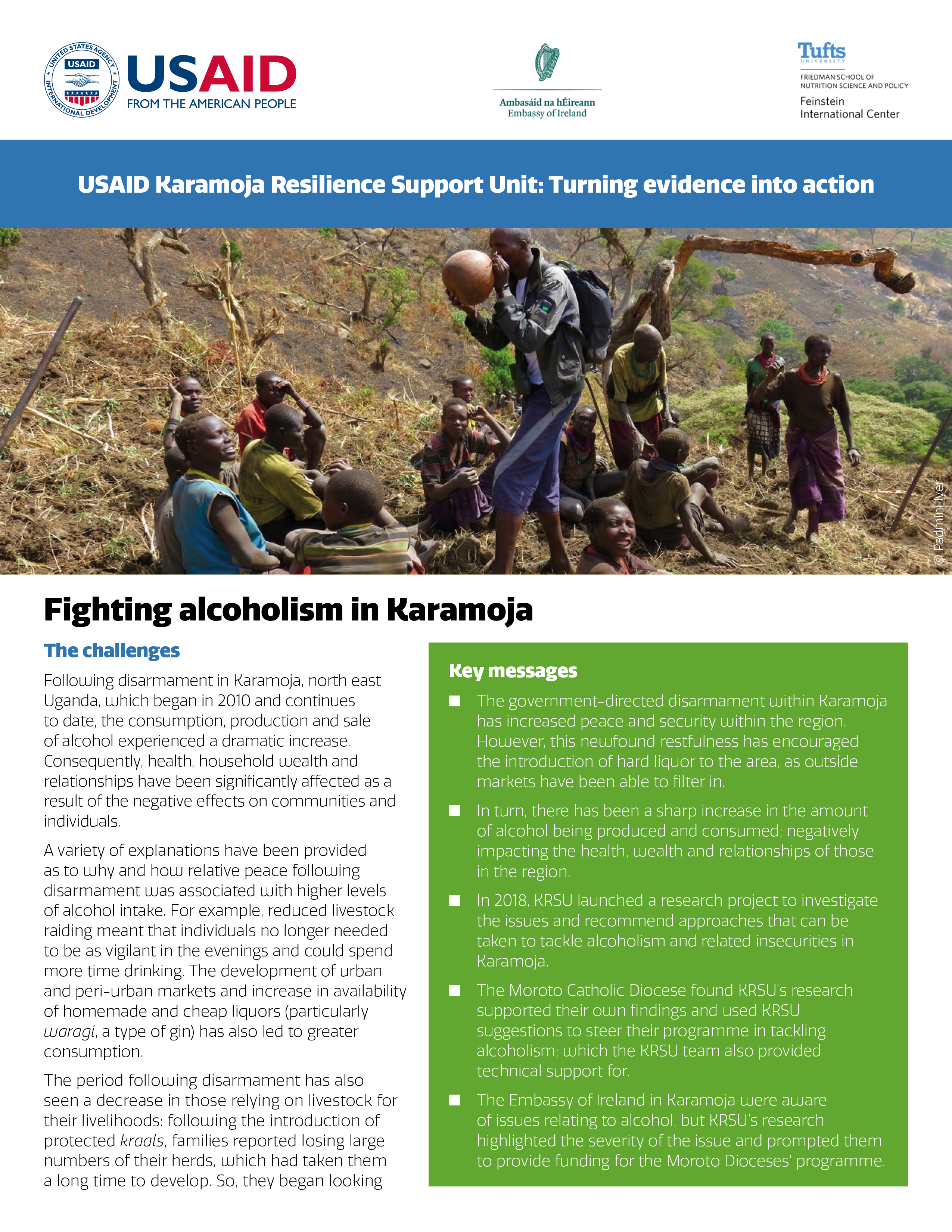
Fighting alcoholism in Karamoja
Following disarmament in Karamoja, north east Uganda, which began in 2010 and continues to date, the consumption, production and sale of alcohol experienced a dramatic increase. Consequently, health, household wealth and relationships have been significantly affected as a result of the negative effects on communities and individuals.
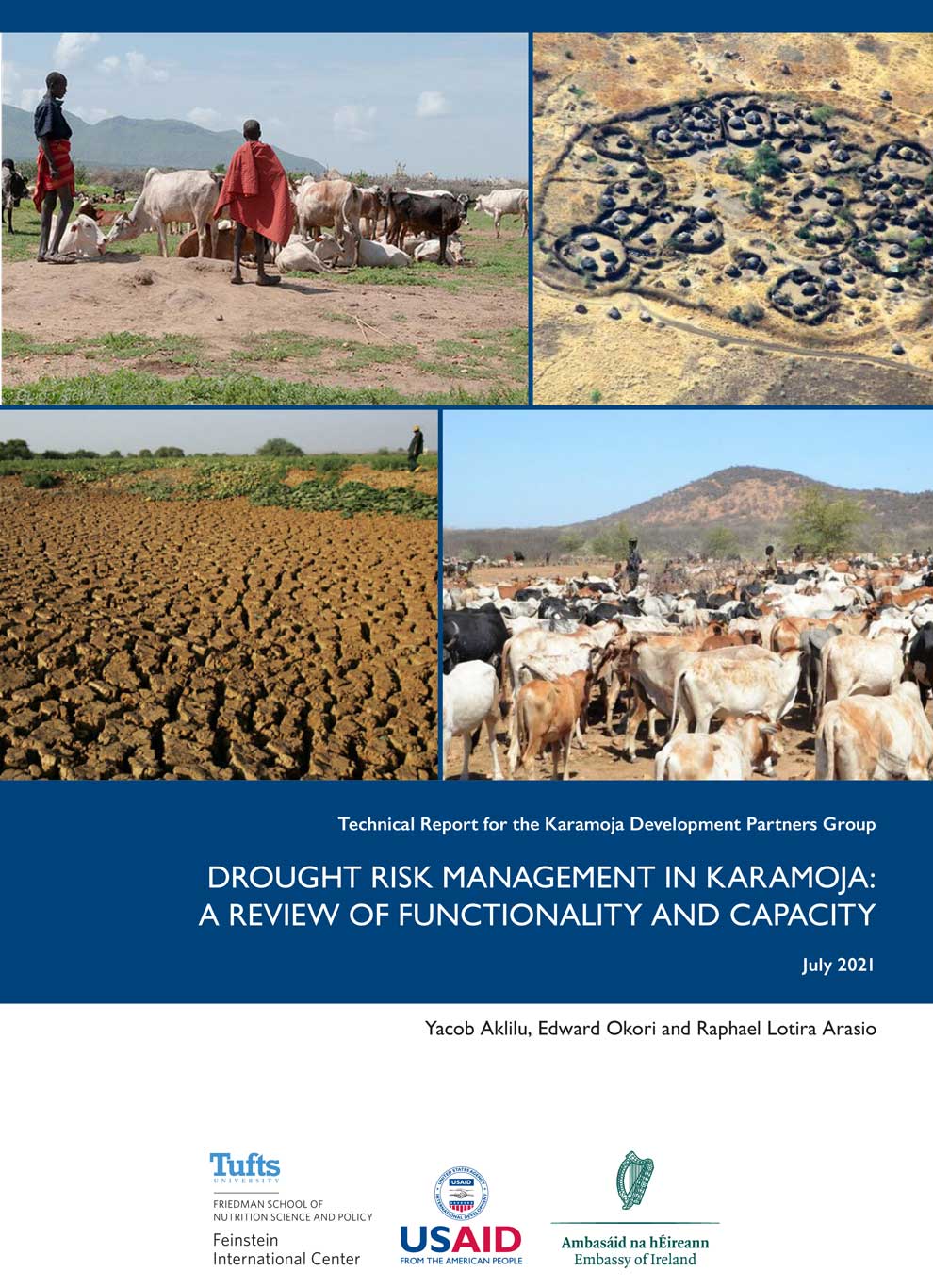
Drought Risk Management in Karamoja: A Review of Functionality and Capacity
In the history of Karamoja, drought has been one of the most important types of disaster, with major impacts on livelihoods. For livestock-owning households, drought can push both wealthy and poorer households into destitution, and the recovery of herds, their main form of financial capital, takes many years. Drought also has serious impacts on crop production and can decimate harvests. In the case of livestock interventions, there have been notable developments in effective drought response in many countries in the wider East Africa region, including novel partnerships between government, non-governmental organizations (NGOs) and private sector to provide early and more cost-effective programming.
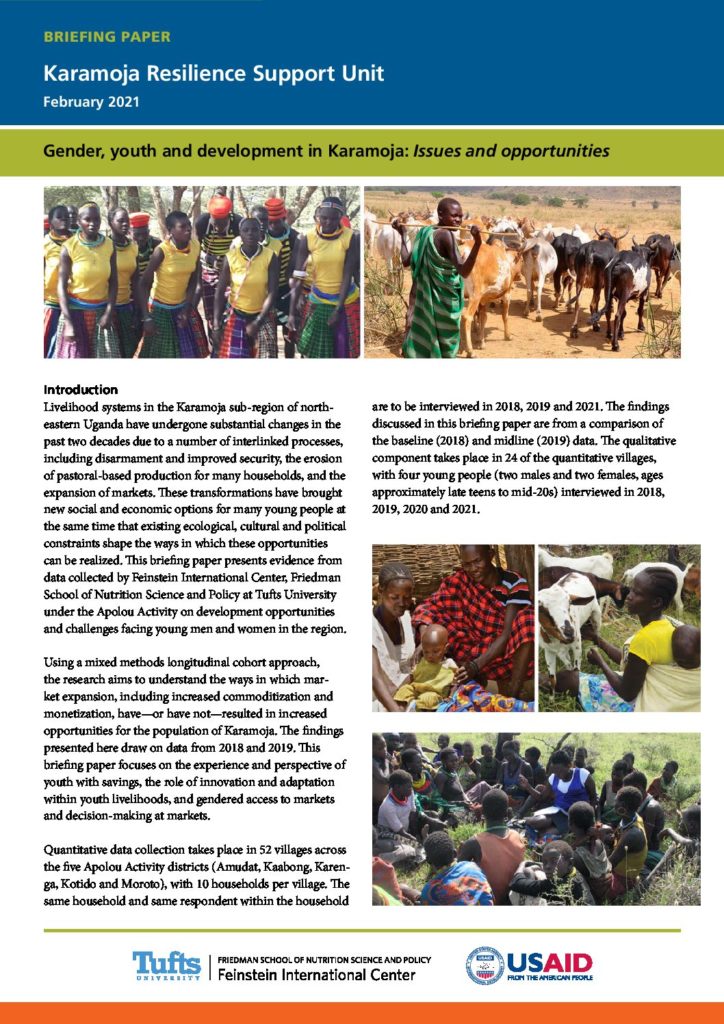
Gender, youth and development in Karamoja: Issues and opportunities
Livelihood systems in the Karamoja sub-region of northeastern Uganda have undergone substantial changes in the past two decades due to a number of interlinked processes, including disarmament and improved security, the erosion of pastoral-based production for many households, and the expansion of markets. These transformations have brought new social and economic options for many young people at the same time that existing ecological, cultural and political constraints shape the ways in which these opportunities can be realized. This briefing paper presents evidence from data collected by Feinstein International Center, Friedman School of Nutrition Science and Policy at Tufts University under the Apolou Activity on development opportunities and challenges facing young men and women in the region.
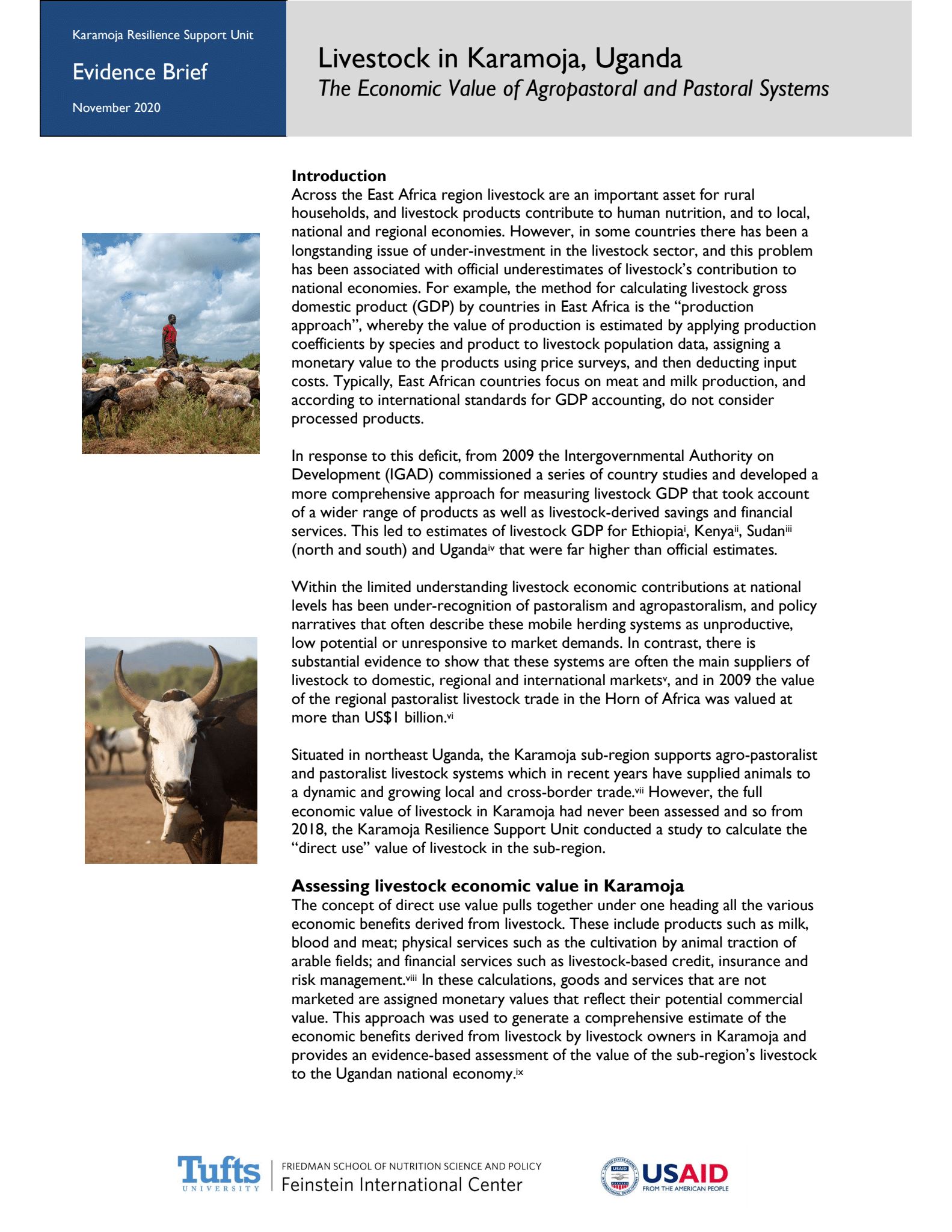
Livestock in Karamoja, Uganda- The Economic Value of Agropastoral and Pastoral Systems
Across the East Africa region livestock are an important asset for rural households, and livestock products contribute to human nutrition, and to local, national and regional economies. However, in some countries there has been a longstanding issue of under-investment in the livestock sector, and this problem has been associated with official underestimates of livestock’s contribution to national economies.
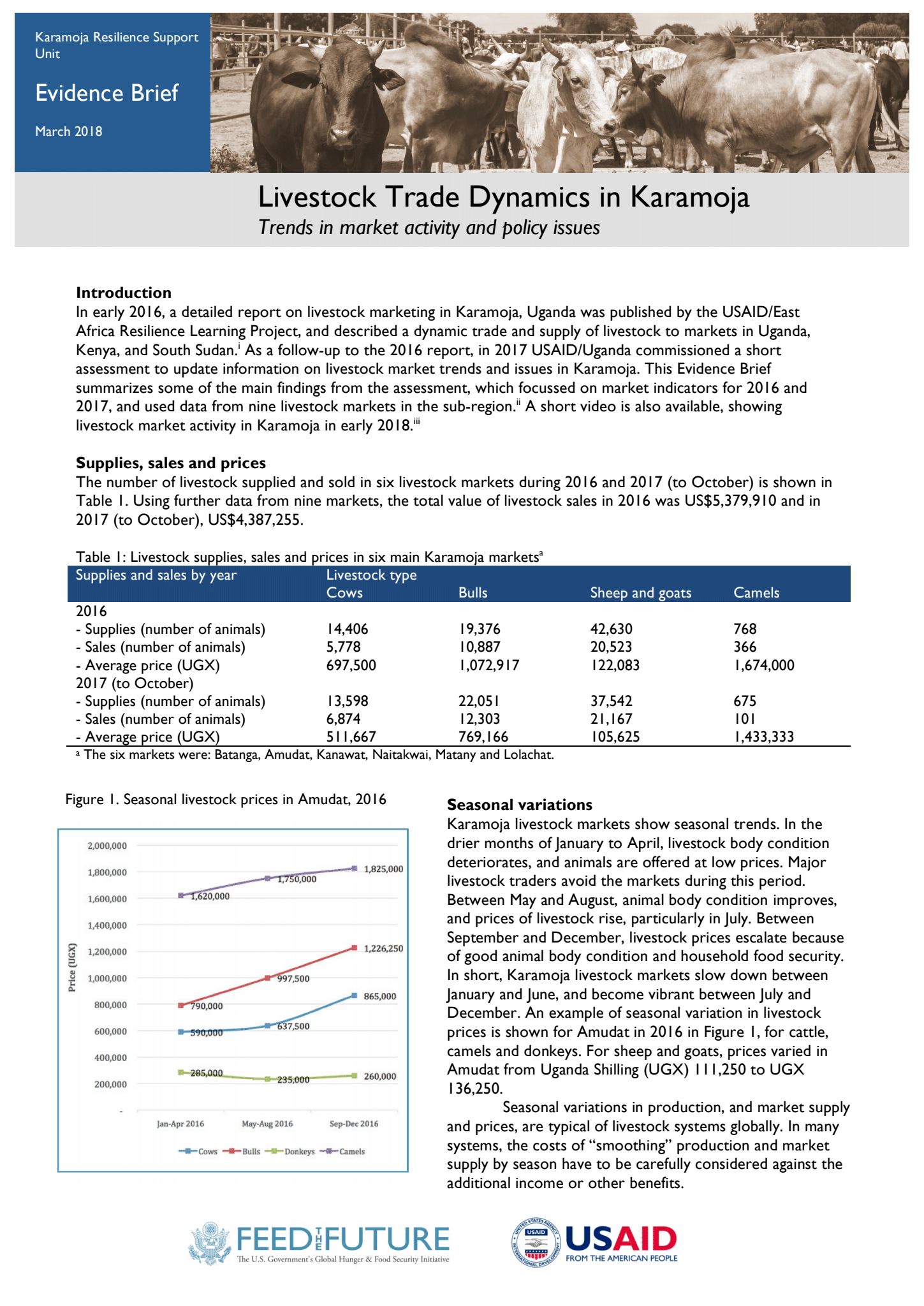
Livestock Trade Dynamics in Karamoja-Trends in market activity and policy issues
In early 2016, a detailed report on livestock marketing in Karamoja, Uganda was published by the USAID/East Africa Resilience Learning Project, and described a dynamic trade and supply of livestock to markets in Uganda, Kenya, and South Sudan. As a follow-up to the 2016 report, in 2017 USAID/Uganda commissioned a short assessment to update information on livestock market trends and issues in Karamoja.
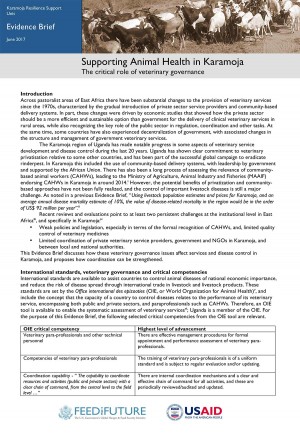
KRSU Veterinary Support Brief
Across pastoralist areas of East Africa there have been substantial changes to the provision of veterinary services since the 1970s, characterized by the gradual introduction of private sector service providers and community-based delivery systems.
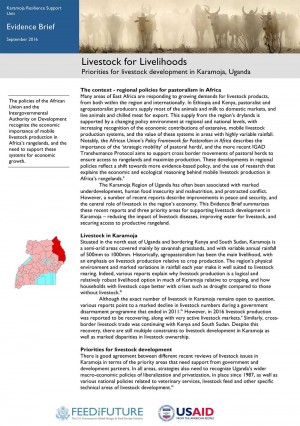
Livestock for Livelihoods- Priorities for livestock development in Karamoja, Uganda
Many areas of East Africa are responding to growing demands for livestock products, from both within the region and internationally. In Ethiopia and Kenya, pastoralist and agropastoralist producers supply most of the animals and milk to domestic markets, and live animals and chilled meat for export. This supply from the region’s drylands is supported by a changing policy environment at regional and national levels, with increasing recognition of the economic contributions of extensive, mobile livestock production systems, and the value of these systems in areas with highly variable rainfall.
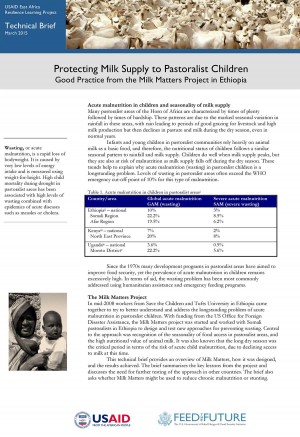
Protecting Milk Supply to Pastoralist Children: Good Practice from the Milk Matters Project in Ethiopia
This technical brief provides an overview of Milk Matters, how it was designed, and the results achieved. The brief summarizes the key lessons from the project and discusses the need for further testing of the approach in other countries. The brief also asks whether Milk Matters might be used to reduce chronic malnutrition or stunting. In mid-2008 workers from Save the Children and Tufts University in Ethiopia came together to try to better understand and address the longstanding problem of acute malnutrition in pastoralist children.With funding from the US Office for Foreign Disaster Assistance, the Milk Matters project was started and worked with Somali pastoralists in Ethiopia to design and test new approaches for preventing wasting. Central to the approach was recognition of the seasonality of food access in pastoralist areas, and the high nutritional value of animal milk. It was also known that the long dry season was the critical period in terms of the risk of acute child malnutrition, due to declining access to milk at this time.